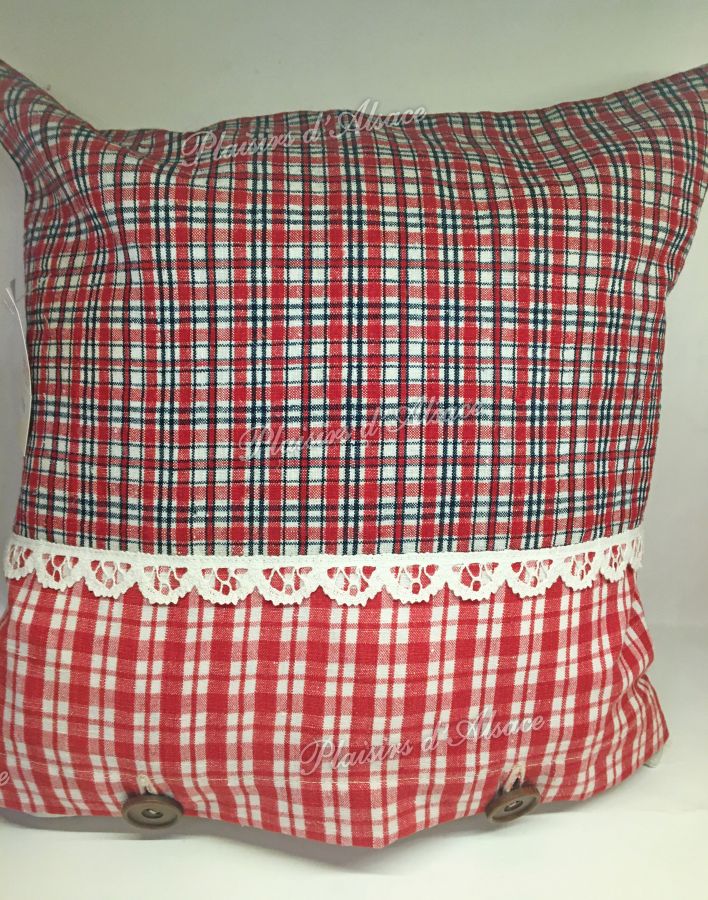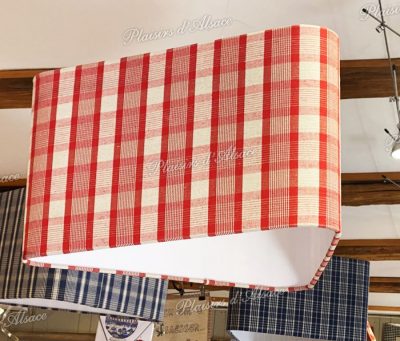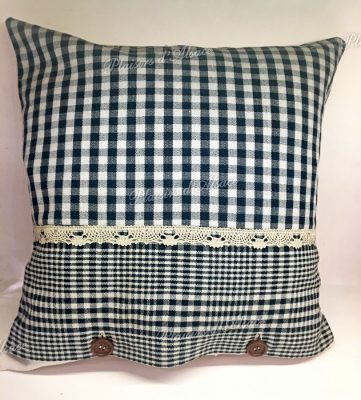Old Kelsch Cushion Cover 8038
Description :
The Kelsch fabric is still a locally woven fabric made in the traditional way. Kelsch is made of linen. Its patterns, which are infinitely varied, usually revolve around stripes and checks. All colors can be found, with a preference for blues and reds. Traditionally, Kelsch fabric comes in checks of natural and blue, natural and red, or a mixture of all three colors.
A brief history of Kelsch fabric
Originally, this fabric was made of pure linen. Later, when cotton was imported and became more well-known, starting from the 19th century, Kelsch fabric began to be made in a blend (meaning with a cotton warp and a linen weft). Linen has been cultivated in our regions since the 12th century, whereas cotton cultivation was never possible there. Kelsch was manufactured by peasants in winter, at their homes. In most farms, there was a loom, and the yarns were dyed with indigo for blue and madder for red. The types of checks varied depending on the regions, weavers, and families. This Kelsch fabric was used to make duvet covers and pillowcases, with the tops of these covers mostly made of Kelsch, while the bottoms were made of bleached linen. The curtains that closed the alcoves were also made of Kelsch. Traditionally, Catholics in the last century had predominantly red fabrics, while Protestants often had blue check fabrics. As for the origin of the word “Kelsch,” it seems to come from the adjective “kölnisch” (from Cologne), recalling the use of “Cologne blue” cultivated on this side of the Rhine since the 8th century. Indeed, Charlemagne had ordered and regulated by very strict edicts the planting of woad (giving the blue color) by dyers. Others suggest that the word “kelsch” could be of Celtic origin. Indeed, the Celts planted flax and knew how to weave check fabrics, as evidenced by the weaves of Scottish clans to this day.



